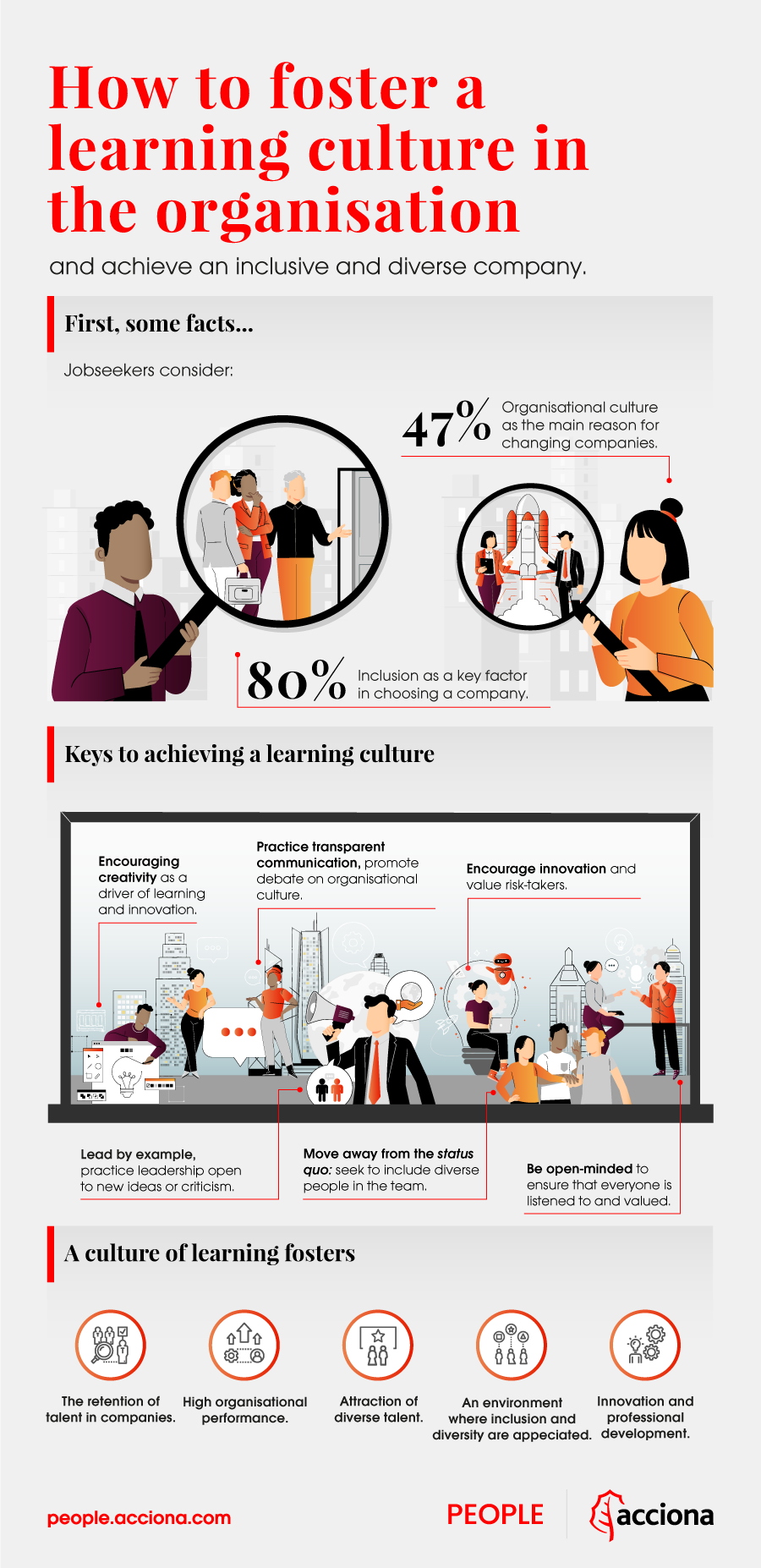As we have seen in previous articles, an inclusive organisation generates a sense of belonging in which all members of a company feel recognised, valued and respected as a person and feel free to be who they are in their work context.
According to experts, learning-oriented cultures provide the flexibility and open-mindedness necessary for people to enjoy the business environment. In addition, the ability to adapt and innovate that characterises a learning culture equips organisations to cope with the unforeseen events and developments of a changing business environment.
How can we define a learning culture? It’s a model that challenges its own methods and ways of doing things continuously. This approach facilitates innovation, continuous improvement and the ability to change.
In turn, it enables professionals to gain the knowledge, skills and experience necessary to give the best of themselves, and to help the organisation grow through their personal and professional development.
“The learning culture continually challenges its own methods and ways of doing things”.
According to HBR, on the other side of the coin are organisations that foster a culture of authority, where dominance, security and stability are the pillars. These are companies with low rates of diversity and inclusion.

